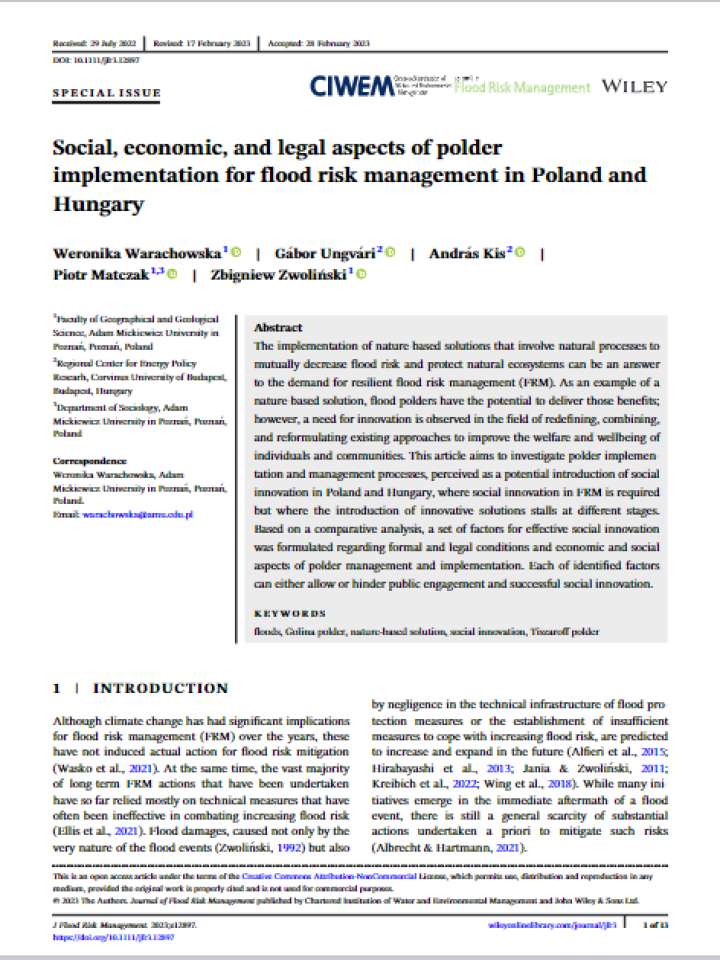Social, economic, and legal aspects of polder implementation for flood risk management in Poland and Hungary
This article aims to investigate polder implementation and management processes, perceived as a potential introduction of social innovation in Poland and Hungary, where social innovation in FRM is required but where the introduction of innovative solutions stalls at different stages. Based on a comparative analysis, a set of factors for effective social innovation was formulated regarding formal and legal conditions and economic and social aspects of polder management and implementation.
The evidence from the comparative analysis shows that facing the disastrous consequences of flood events is a strong driver for undertaking flood risk mitigation actions. Yet this does not always evoke a change aimed at improving the welfare and wellbeing of society. Effective introduction of social innovation is bounded by several factors that are full of contradictions—the same aspect can either allow or hinder public engagement and successful social innovation. Furthermore, there are hardly any necessary conditions, while several combinations of sufficient conditions can lead to success.
Explore further
